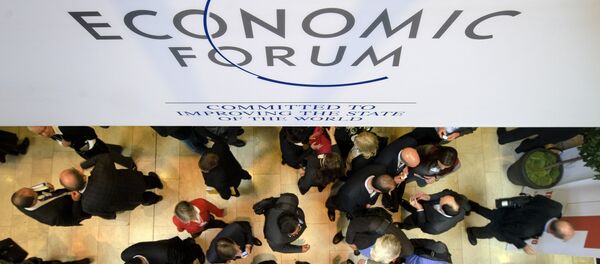"As a whole, Austria is one of the European countries which has been against sanctions from the very beginning, like Hungary, the Czech Republic, Slovakia, but also Italy, Greece and Cyprus," Havlik says, adding that it is difficult to predict the likelihood that sanctions will be reversed.
Havlik stated that the recent rally of the Swiss franc creates problems for countries which took out loans in the currency, although it may ease export competitiveness for the Eurozone as a whole.
Havlik also believes that the situation with minorities remains tense in Europe and is "becoming more complicated due to an unfavorable economic situation in Europe, high unemployment and economic stagnation."
Peter Havlik is a Research Economist and former Deputy Director at The Vienna Institute for International Economic Studies.







